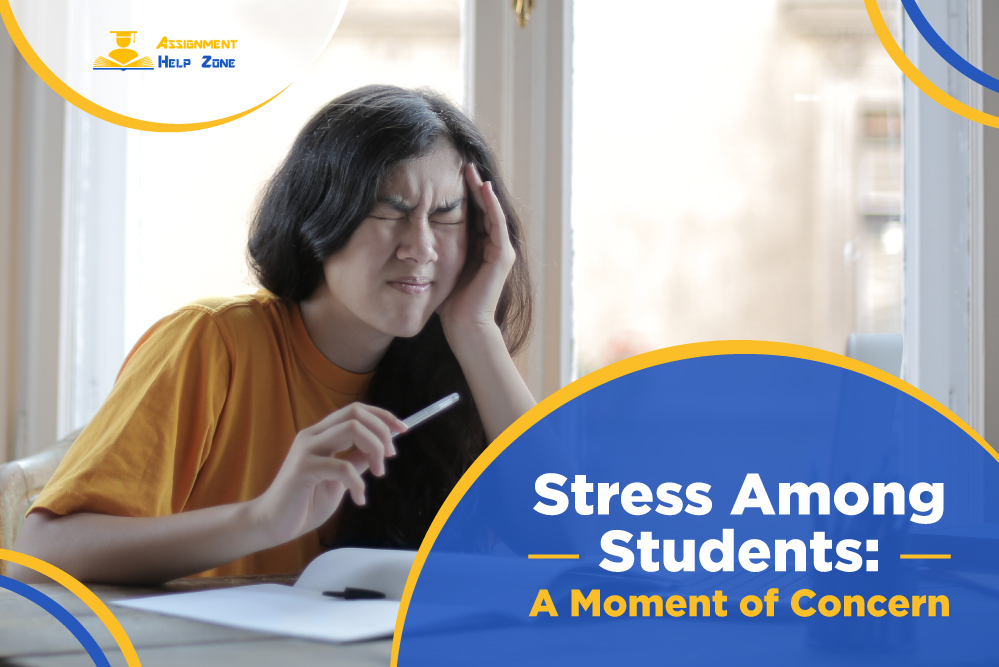Today’s article is about increasing depression among students. It’s a topic that has been making headlines recently, and it’s an important one to discuss. We’ll be talking about how we can help our students deal with the symptoms of stress, and depression, as well as how we can help our schools support them in dealing with these issues. If you are a student who is feeling depressed lately, ask a professional for Nursing assignment help online.
The symptoms of depression include many feelings. For instance, hopelessness, being unable to concentrate, and having difficulty sleeping. These symptoms can be difficult for students to manage on their own, so schools need to provide resources for them.
The most effective way to do this is by offering counseling services for students who need them. This can be done through online services or at in-person meetings with trained professionals who can guide how best to use those resources.
For us as educators and parents to truly help our students deal with these issues, we must first accept that they are real and acknowledge them as such without disgracing or shaming them. We also need to provide support systems within schools so that these students feel safe telling others about their struggles without fear of being judged.
Ahead of this article, we’ll discuss more depression among students and how to cope with that effectively.
Stress is a normal part of life. Everyone experiences it, and most people deal with it in one way or another. However, there are many different types of stress, so it’s important to understand what affects you and how you can manage it.
The most common type of stress is called “emotional” stress. This kind of stress originates from within your body and affects your mood, behavior, and thinking patterns. The most common signs of this kind of stress are anxiety and depression.
In contrast with emotional stress, physical or “life” stress refers to external factors like work or family problems that create temporary disturbances in your ability to function at a high level. You might feel tired or stressed out because of these external factors but not necessarily because you’re experiencing emotional distress.
Physical stress can be further broken down into two categories: acute (short term) and chronic (long term). Acute physical stress occurs when there is an immediate threat; for example, if someone cuts you off on the highway in front of them because they’ve lost control of their car for some reason.
Now since we have quite an idea of what stress is, let’s move further.
The Source of Depression Among Students
Depression is a serious problem that can affect anyone, not just the elderly. It’s especially common in young people, and its prevalence has increased over the past few years. This is a problem because depression can have long-term effects on your health and well-being.
One of the biggest sources of depression for students can be stressful. Stressful situations like exams, deadlines, or financial problems can cause students to feel overwhelmed, which leads them down a dark path of despair and hopelessness.
The other major source of depression for students is social media addiction. Social media sites are full of pictures of perfect lives that attract people who want to be part of that lifestyle instead of their own lives (which are often chaotic). Students who feel like they’re not good enough for those lifestyles start feeling inadequate and depressed as a result.
How to Deal with Depression as Students?
Depression is a serious issue for many people, but it can be overcome. In this article, we’ll give you tips on how to deal with depression in student life.
1. Seek Professional Help
If you or someone you know is suffering from depression, it’s essential to seek professional help as soon as possible. The sooner you get treatment and treatment options, the better your chances will be of feeling better and being able to function normally again. Many different types of professionals can help with depression: psychiatrists, psychologists, social workers and therapists are just some of the options available! A good first step would be to talk to your GP about whether they think a mental health professional could help with your current situation.
2. Stay Positive
It’s really important not to become too discouraged by feeling down or sad during this time. Remember that there is light at the end of the tunnel—things will get better! It’s also important not to let yourself get into a vicious cycle where every time something bad happens (like losing someone close to you), it makes you feel even worse than before because now there’s even less reason not to feel depressed.
How to Avoid Depression While Writing an Assignment?
It’s sometimes hard to see the light at the end of the tunnel when you’re depressed. It can seem like the only thing that will help you is to just stop writing, but that’s not true! Here are some tips to help you cope with depression while writing an assignment:
- Don’t stop doing what makes you happy! If you love writing, do it! If it helps, find a creative outlet. Like drawing or painting or journaling—that makes you feel better and calms your nerves.
- Keep a journal of your thoughts and feelings. Writing down what’s going on in your head can help keep everything organized and bring perspective on how things look from an outsider’s point of view.
- Talk to someone who understands what you’re going through! Even if they don’t have experience with depression themselves, they might know someone who does. Or maybe they can just listen without judging or telling you that everything will work out fine if only you try harder or make more money or whatever…
- Give yourself time. Give yourself time. To think about how long it took for things to get worse before talking about them with someone else.
How to Include A Positive Attitude and Gratefulness in Life?
The root cause of depression is a lack of gratitude and a positive attitude towards what you have in life.
The most important thing to remember when you’re having a bad day is that it’s just one day. It’s not the end of the world, and it’s not even the end of your life. It’s just one day, and you will be okay tomorrow.
That being said, we do think it’s important to take a step back from the negative things happening in your life sometimes. Especially if you’ve been feeling down for a while. And I think that if you can find some time to sit down and write about how grateful you are for what you have going on right now, it can help bring some positivity back into your life. So here are some ways you can do that:
- Write down 3 things that happened today that made you feel happy or accomplished. And 3 things that happened today that made you feel sad or frustrated. Write down 3 things that happened today that made you laugh out loud (or at least crack a smile).
- Make a list of all the positive things that have happened recently in your life (like a new job offer, or getting an amazing text message from someone). If there are any negative things on this list too (like arguing with someone), make sure they’re at least.
Feeling Stuck?
If you find yourself stuck on what to list, try thinking of things that happened in your life recently that made you feel good or happy. These could be positive experiences like receiving a gift or going out with friends and having fun on a date. Or they could even be negative ones like finding out about an illness or death in your family (which will bring up some feelings).
The point is that quickly remembering a few moments from the past where something good happened will allow you to practice being grateful throughout every day—and it’ll make those moments even sweeter as time goes on!
How to Avoid Taking Depression Because of Studies?
The common reason why students feel depressed is nothing but extensive academic writing tasks.
If you’re one of the many people who are suffering from depression because of studies, you’re not alone. Studies can be stressful and they can make you feel like you don’t have control over your own life.
But there are ways to avoid taking antidepressants if you need them. And it’s all about finding what works for your body. Here’s how:
- Don’t compare yourself to other people or their mental health problems. Your situation is unique and different from theirs, so don’t compare yourself to them in any way (unless they’re also going through depression).
- Don’t compare yourself to other people’s circumstances. Or even their lives as a whole! You may have some things in common with others, but it’s important to remember that everyone’s journey through life is different, so don’t compare yourself too much either.
- Be kind to yourself when something bad happens (even if it’s related to studying). Depression can happen at any time during the day or night, so just keep a positive attitude whenever possible and remind yourself why you’re doing what you’re doing. Even if it seems overwhelming sometimes!
Conclusion:
A large percentage of students go through depression on an average level. But, do we take the right measures to decrease this percentage? Well, the answer is no. This article revolves around every detail of depression that helps you identify it and fight it. We hope our effort helps you get through a hard time safely.
Good luck!


